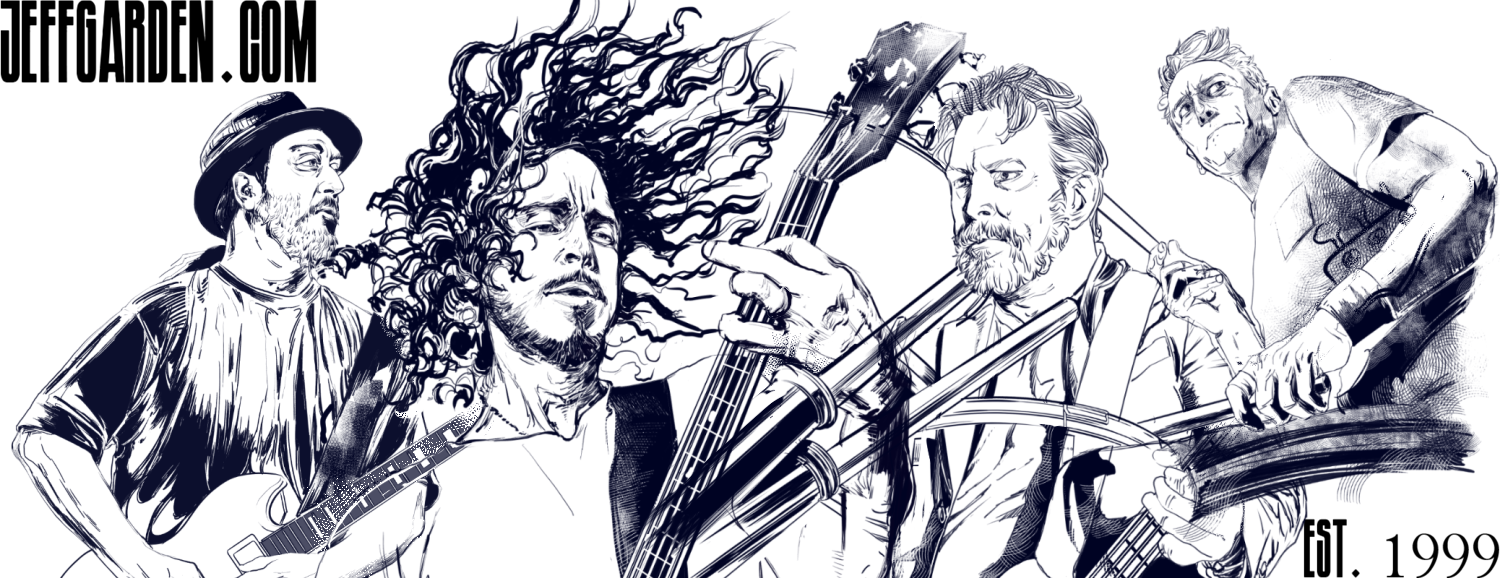Article: "How Audioslave saw Rage Against The Machine’s Tom Morello escaping his own past" | Louder Sound
(Image credit: Jesse Grant/WireImage)
“I don’t think there was a single riff I wrote after 1992 that Zack de la Rocha even liked”: how Audioslave saw Rage Against The Machine’s Tom Morello escaping his own past
Article: LouderSound
Author: Henry Yates ( Classic Rock )
Originally Published: March 17th 2024 | Classic Rock Issue 98
In 2006, Audioslave’s Tom Morello and Chris Cornell sat down with Classic Rock to reveal all about their third album, Revelations
Excerpt:
It’s been almost six years since Morello and the Rage Against The Machine rhythm section of bassist Tim Commerford and drummer Brad Wilk joined forces with former Soundgarden vocalist Cornell. And yet, to this day, not an interview goes by without some barbed reference to Audioslave as a ‘supergroup’. Some critics argue that Audioslave still feels like a marriage of convenience; others that the interpersonal bonhomie makes for slightly toothless music.
Five minutes in Morello’s company is enough to make you forget there was ever life before Audioslave. Quite patently, the guitarist has invested everything in this band, and believes it is only media pundits who still use the ‘S’ word to describe them. “It’s always been clear to us this isn’t just a supergroup,” he smiles. “And now we’re on our third record, the rest of the world knows too. Besides, if Audioslave is anything, it’s a super-duper group.”
Audioslave’s Chris Cornell and Tom Morello play the Jimmy Kimmel show in 2005
(Image credit: Photo by Jaimie Trueblood/WireImage)
Morello has described Revelations as “Led Zeppelin meets Earth, Wind & Fire”. Would he care to elaborate?
“I’m the hard rock policeman of the band,” Morello reasons. “And the record first and foremost has to kick ass. Once it does, then what makes music interesting is for it to groove as well. That’s what this record does. It’s a face-ripping record that you can shake your ass to. And I don’t think Chris has ever sung better. There’s less hollering; he’s really got in touch with the blue-eyed soul singer within.
“You’d have to ask Chris about lyrics,” he continues, “but Wide Awake [about the fallout of Hurricane Katrina] is certainly the most explicitly political Audioslave song we’ve done. Everyone saw how George Bush failed the American people, and I’m glad Chris wrote about it.”
Which is interesting, if it is true that a condition of Cornell joining Audioslave was that it would be apolitical.
“Well, that’s inaccurate,” Morello counters. “Initially it was my hope that Audioslave would be more political than Rage, but it turned out that wasn’t going to be authentic. Audioslave was allowed to find its own path, while I formed [political organisation] Axis Of Justice with Serj Tankian from System Of A Down, and started [side-project] The Nightwatchman, writing political folk music in the style of Woody Guthrie. It’s an important part of my musical life. It fills a need for me.”
Some people hold the view that Morello is the brains behind Audioslave and Cornell is the voicebox.
“I certainly wouldn’t characterise Chris like that,” the guitarist responds. “The two things I think are extraordinary about him are, first, his ability to create melodies over any piece of music. That’s one of the greatest strengths of Audioslave. It can be a simple three chords or a more complicated riff, and he can do the great Cornellian vocal treatment and never repeat himself. The other thing is that he tends to love what we come up with musically. And that’s in stark contrast to Rage. Frankly, I don’t think there was a single riff I wrote after 1992 that Zack [De La Rocha, RATM vocalist] even liked.
“And no, I don’t agree that bands benefit from friction,” he fires, without the question being asked. “Certainly not with any bands I’ve been in. Maybe in Rage there was a musical tension where the hard rock and hip-hop clashed, and the rap and crazy guitar butted up against each other, but those things were positive. The personal disagreements were always negative. When Rage was great as a songwriting unit, it was when we were the best of chums. The periods of four years between records, the wasted time and cancelled tours, that was during the conflict. Obviously there’s a lot less conflict in Audioslave,” he says. “When we write songs, it’s all four of us in the room, bouncing off each other. I would consider them great friends. It’s not like we’re down at the pub all the time, but we like each other very much.”







